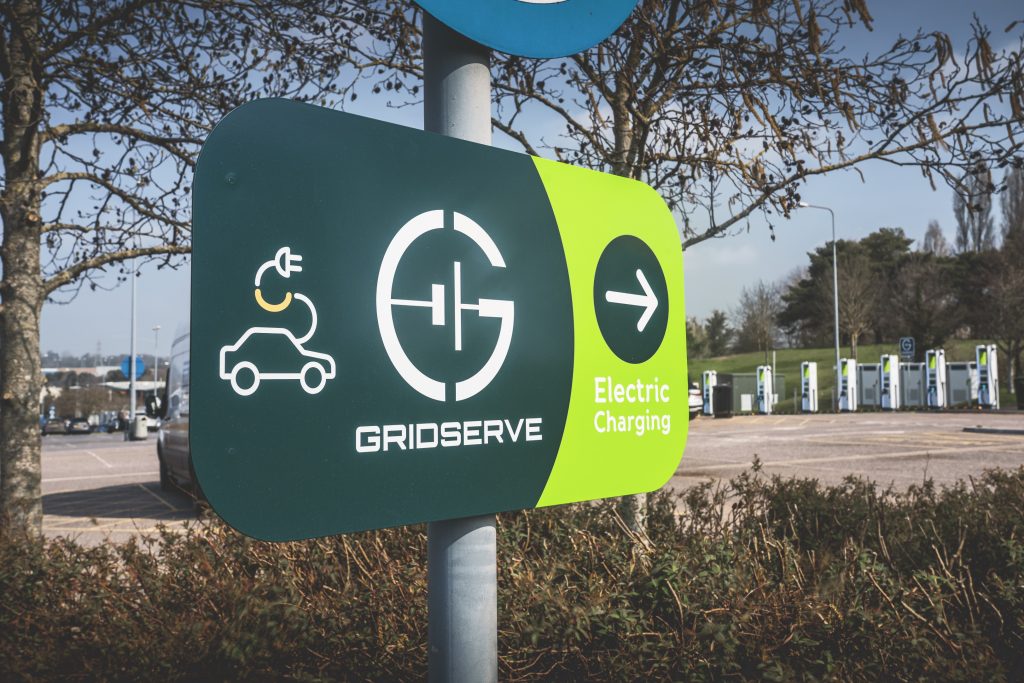The number of charging points per EV in the U.K. has nearly halved in two years, with one charger for 30 EVs now, compared to one for 16 EVs at the start of 2020, addording to government figures reported in The Times.
This has led to concerns that the country will miss the 2030 rollout target of 300,000 EV chargers. However, industry sources say it is possible to deliver the target if barriers to financing are addressed and chargepoint rollout accelerates to match the demand.
EVs took over from diesel-powered cars last year, becoming the second largest segment after petrol, as more people switched. To cater to the growing demand, the industry installed 9,000 chargers last year, but that wasn’t enough. There are more than 1.3 million plug-in cars on U.K. roads today, but only 37,000 plus chargers.
“Whilst this is a challenge, it is entirely possible to deliver,” Lauren Pamma, Programme Director at the Green Finance Institute, said, referring to the 2030 chargepoint rollout target. “The key to addressing this inequality, as well as boosting the total number of public chargepoints, is to address barriers to financing.”
Pamma further said that financial products, like utilisation linked loans, will allow the crowding in of private finance and will have an enormous impact on the pace and scale at which the industry deploys new EV charging infrastructure. She also emphasised the need to focus on locations rather than the quantity alone.
“Currently chargepoints are disproportionately grouped in affluent areas forming an unsurpassable barrier to EV ownership for consumers in different parts of the country,” Pamma said, adding a lot more can be done to use these devices more efficiently. She further said that home chargepoint sharing can help increase the resilience and capacity of the country’s charging network.
Referring to consumer appetite for EVs, sustainable energy business Gridserve said it is a good problem to have.
“It is imperative that we continue to accelerate the roll out of charging infrastructure at the pace and scale needed to keep up with demand and avoid discouraging drivers to make the switch to electric,” said the company, whose charging network caters to more than 100,000 EVs a month.
Industry sources also emphasised the need to invest in the burgeoning global demand for what underpins the future of road transport – batteries. The Green Finance Institute explored this opportunity in a recent report.
However, the institute noted that this is a very narrow window of opportunity. “If we miss it, we’re likely to see a continuation of this trend as manufacturers continue to move towards electric product lines but don’t see the benefits of keeping manufacturing in the UK,” said Suzanna Hinson, Lead of Battery Workstreams at the Green Finance Institute’s Transport Team.
Once the manufacturers move abroad it is much harder to convince them to return to the UK and it can cause both jobs and the economy to suffer, according to the GFI.
To mobilise this necessary finance and save the U.K.’s car manufacturing sector, the country must address the barriers to investment, said the GFI, which has identified seven solutions to mobilise private capital at the pace and scale required to accelerate investment in the battery supply chain.
“The Inflation Reduction Act (IRA) in the United States is a blueprint for government legislation to dramatically scale domestic car production and highlights the effective policies that other economies are utilising to unlock private capital,” Hinson said.
